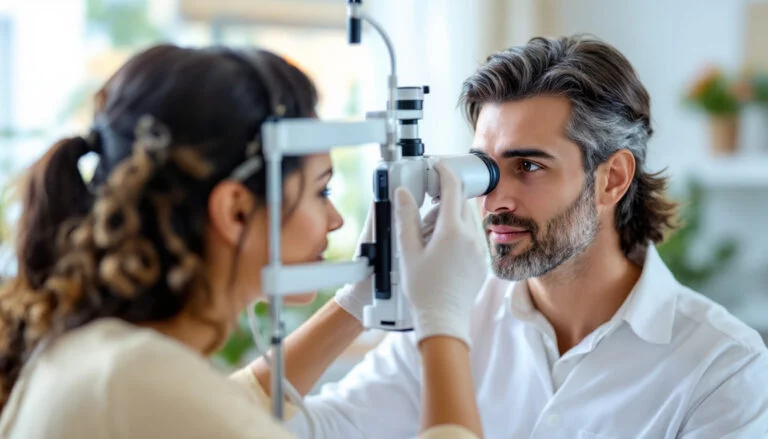Your eyes are priceless windows to the world, and maintaining their health is crucial for a vibrant and active life. Regular eye exams play a vital role in preserving your vision, detecting eye diseases early, and preventing potential vision loss.
In this article, we’ll explain why routine eye check-ups are essential, what to expect during an exam, and tips to keep your eyes healthy for years to come.
Why Are Regular Eye Exams Important?
Early Detection of Eye Diseases
Many serious eye conditions such as glaucoma, cataracts, and macular degeneration develop gradually without noticeable symptoms. Routine eye exams help detect these diseases early when treatment is more effective, helping to prevent irreversible damage.
Monitor Vision Changes
As we age, vision can change subtly. Regular exams ensure your prescription for glasses or contact lenses is always up to date, providing clear and comfortable vision.
Overall Health Indicator
Eye exams can reveal signs of systemic health issues like diabetes, high blood pressure, and even certain cancers. Your eye care professional can spot these early warning signs during a comprehensive exam.
What Happens During a Routine Eye Exam?
- Vision Testing: To check your visual acuity and determine if you need glasses or a change in your prescription.
- Eye Pressure Measurement: To screen for glaucoma by measuring the pressure inside your eyes.
- Slit-Lamp Exam: A detailed examination of your eye’s front structures, including the cornea, iris, and lens.
- Retinal Examination: Using special lenses or imaging devices to inspect the retina and optic nerve for any abnormalities.
- Health History Review: Discussing your medical history, lifestyle, and any vision problems you may be experiencing.
How Often Should You Get an Eye Exam?
- Children: First exam at 6 months, again at age 3, and before starting school. Annual exams if wearing glasses or contacts.
- Adults (18-60 years): Every two years if no symptoms or risk factors; annually if wearing corrective lenses or at risk for eye disease.
- Seniors (60+ years): At least once a year, as the risk for eye diseases increases with age.
Tips to Protect Your Vision Between Exams
- Wear sunglasses with UV protection
- Take breaks during prolonged screen time using the 20-20-20 rule (every 20 minutes, look at something 20 feet away for 20 seconds)
- Maintain a healthy diet rich in leafy greens, omega-3 fatty acids, and vitamins A, C, and E
- Avoid smoking
- Use protective eyewear during sports or hazardous activities
Conclusion
Routine eye exams are a simple yet powerful way to protect your vision and overall health. By catching problems early, monitoring changes, and maintaining healthy habits, you can enjoy clear sight and vibrant eyes for life.
Don’t wait for symptoms to appear—schedule your next eye exam today and give your eyes the care they deserve!

